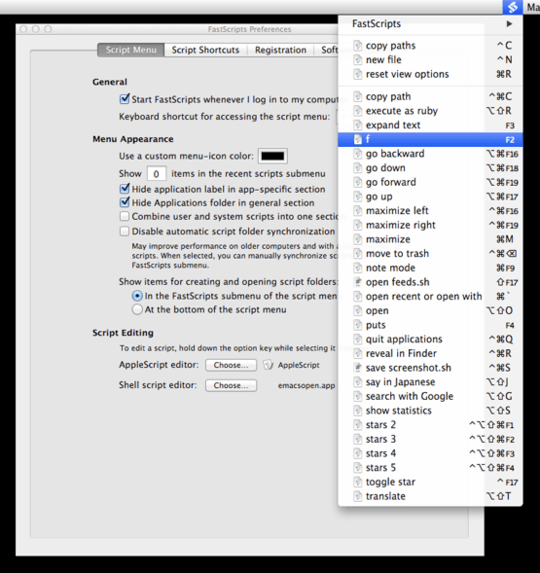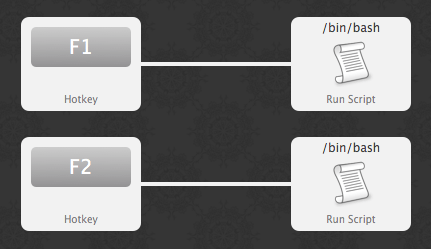33
27
Does OS X provide an easy way to bind key combinations to commands which are typically run on the command line?
For example, is there some way to assign ⌘ Cmd+L as a global shortcut to quickly lock my screen, possibly using /System/Library/Frameworks/ScreenSaver.framework/Resources/ScreenSaverEngine.app/Contents/MacOS/ScreenSaverEngine?



Quicksilver instructions: http://www.macosxtips.co.uk/index_files/run-applescripts-with-keyboard-shortcuts.php
– paragbaxi – 2015-02-06T19:45:24.247FastScripts is $10 shareware but well worth it. – a paid nerd – 2015-04-02T17:50:09.247
Do you have a basic FastScript that does something like bind F1 to open a terminal or whatever? – Nick T – 2016-02-05T20:14:48.847
1Please add Hammerspoon to the list :) – vault – 2017-02-01T14:36:44.097
open -a ScreenSaverEngineis even a tad shorter. – Jari Keinänen – 2011-04-13T20:13:35.327